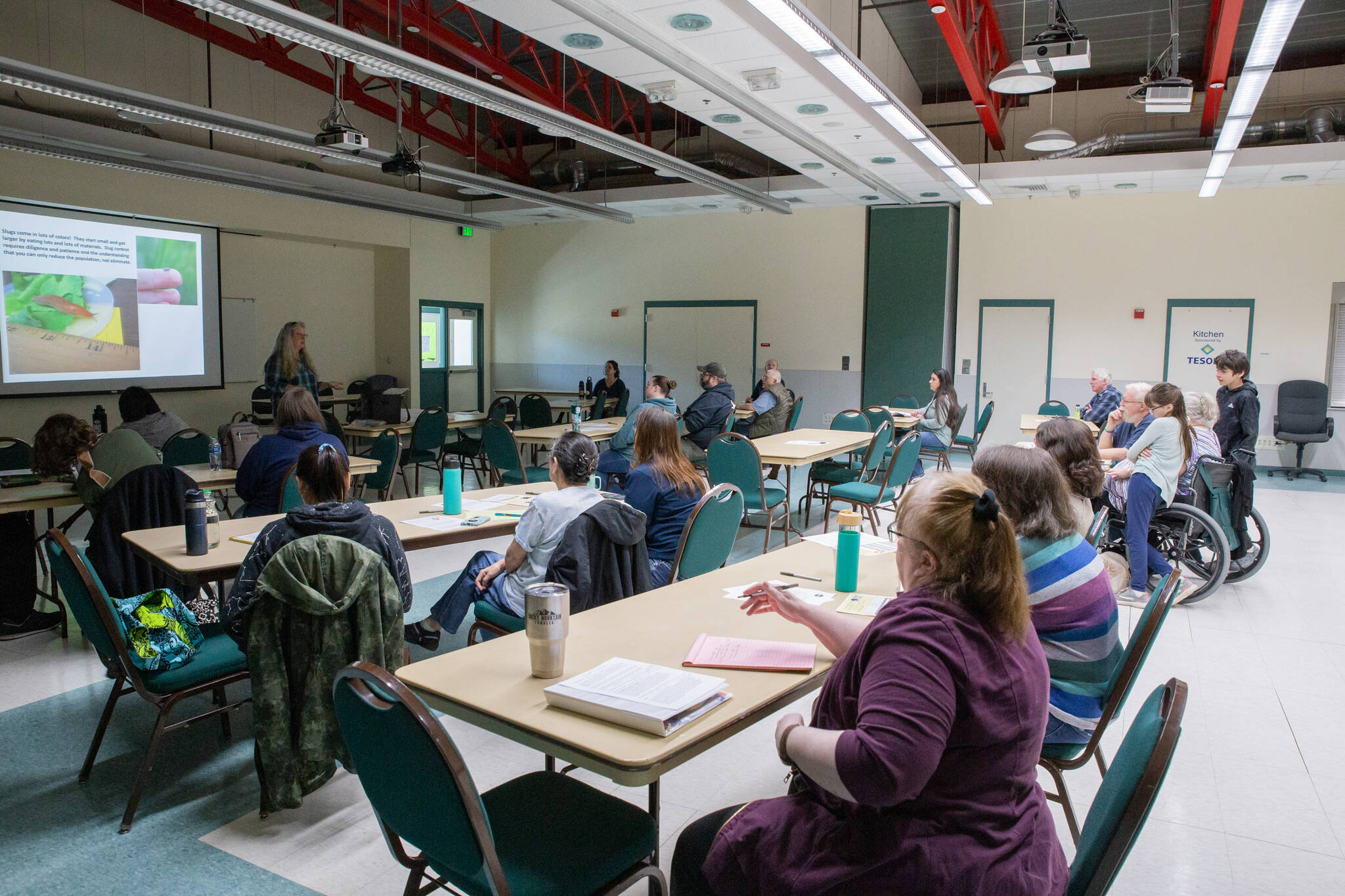The Challenger Learning Center of Alaska will host its second of three workshops as part of the Food Security and Sustainability Series on Wednesday.
The workshop, which runs from 9 a.m. to 3:30 p.m., will focus on gathering, growing and preserving food in the form of plants, fish and other animals.
Chief Executive Officer Marnie Olcott said food security and crop selection has been a part of the Challenger’s mission since its inception.
Each of the three workshops are being offered for free.
She said the workshop series is funded by a grant from the National Aeronautics and Space Administration, as well as other funds secured through the Alaska Space Grant Consortium.
The purpose of the series is to “highlight the role that NASA plays, and the work that NASA has done for years in food security and sustainability,” then “bring that down to the folks here on the Kenai Peninsula,” Olcott said.
In practice, that means teaching the public about producing its own food.
The first series was based on plants and crops.
“What crop selections might be a good choice to give the grower and the growers family the best nutritional value,” Olcott said.
She said it’s also important to understand what seeds have a proven track record in Alaska.
This week, the focus will be on wild harvest and foraging.
“Not just plants and edibles, but also the harvest of our resources here that we have in fish and game — and the proper regulations and laws that go with that,” Olcott said.
The workshop will cover different types of fish, plants and animals in the area, as well as what’s available in different seasons and what equipment can be used.
Olcott said Challenger has partnered with Salamatof Native Association for the workshop, and elders will be sharing cultural and historical knowledge about local plants and animals.
Other experts on hunting, fishing and applicable regulations will also be present to share expertise.
A third workshop, not yet dated but scheduled for sometime between late October and early November, will conclude the series with food preservation. This means storing food, smoking, freeze drying — something Olcott noted NASA is very familiar with — and other cold storage options.
Olcott said the first workshop was highly attended, by around 50 people.
She encourages attendance from anyone with an interest in learning “what is available to us here on the Kenai Peninsula.”
Families are welcome, though Olcott said it’s important to remember that it’s an all-day workshop, running from 9 a.m. to 3:30 p.m., and the workshop isn’t necessarily designed to hold the attention of younger kids for all that time.
The workshop is also a good fit for anyone newer to the area or anyone who would like to benefit from the knowledge of the elders from Salamatof Native Association, Olcott said.
The workshops are all free, though interested attendees need to register online at akchallenger.com/community or on the phone at 907-283-2000.
Olcott said if members of the community are interested in additional information about NASA’s ties to food security, they should reach out and express their interest. A virtual event may be organized to answer these questions.
Reach reporter Jake Dye at jacob.dye@peninsulaclarion.com.

